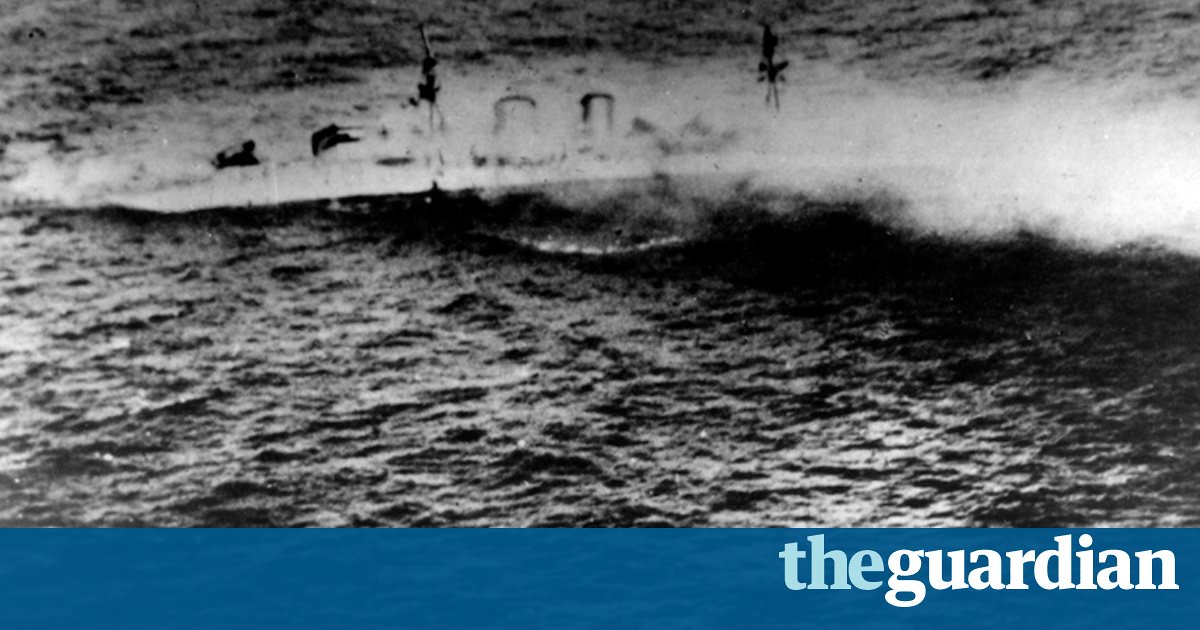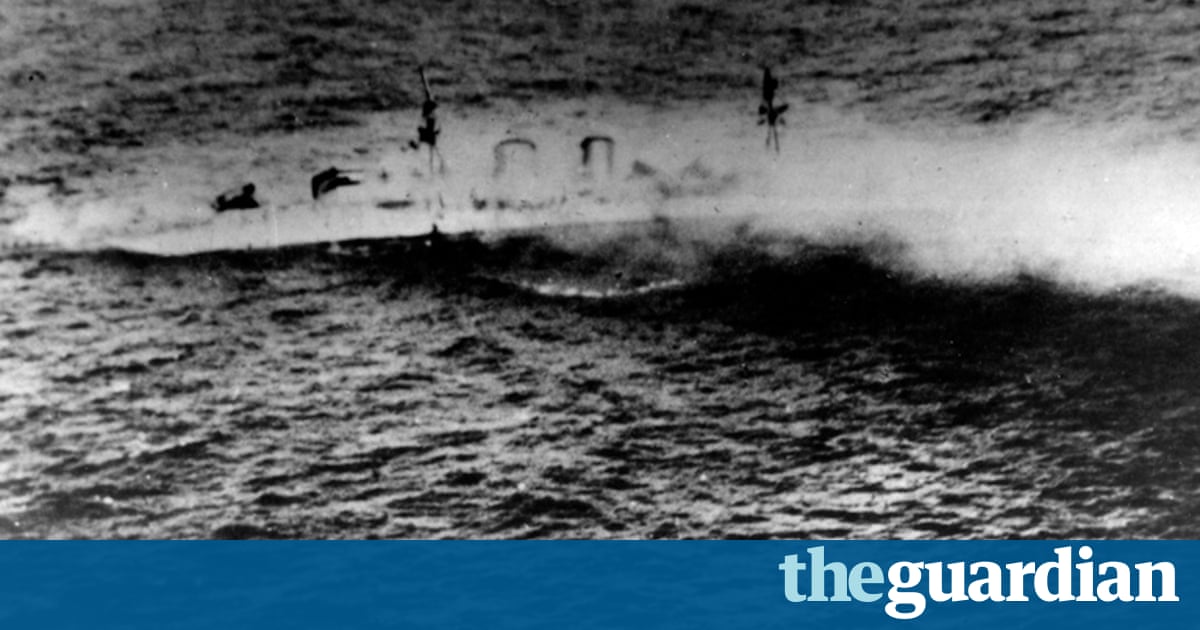Wartime shipwrecks are being illegally salvaged. Are we powerless to stop it?

Second world war ships, most of which are war graves, are vanishing from the Java Sea, yet the Indonesian government says nothing can be done. It is true?

Two weeks ago, a Dutch expedition preparing a 75th anniversary commemoration of the Battle of the Java Sea found only holes on the seafloor where the ships used to be. The Dutch ships HMNLS De Ruyter and HMNLS Java are completely missing and a large section of HMNLS Kortenaer has been stripped away. The same has been confirmed for HMS Exeter and HMS Encounter, as well as sections missing from HMS Electra. The US submarine Perch is also completely gone. While the Perch sank without its crew on board, the other vessels are war graves.
The shipwrecks were salvaged by the scrap metal industry operating in Surabaya and Madura, Indonesia. The Dutch ships were only discovered in 2002 and were intact at that time, so the salvage occurred recently.
Indonesia has been incredulous, responding: As there was no agreement or announcement, when the ships go missing, it is not our responsibility. A member of the navy commented: The Indonesian navy cannot monitor all areas all the time.
Is it true that nothing could be done to protect the shipwrecks?
To begin, Indonesia has an obligation relating to commercial seabed exploitation under the UN Convention on the Law of the Sea, as well as for the actions of its citizens. As naval vessels, the ships have sovereign immunity and remain the property of their nations. This exploitation of cultural resources ends up in processing plants on Indonesian soil. Illegal looting and conversion in ingots for sale is trafficking. Cultural property trafficking is the responsibility of the Indonesian government, in the same way as arms, human, and endangered species trafficking.
However, is it feasible to protect shipwrecks? What would protection mean in terms of cost and logistics?
In 2014, Indonesia passed a law protecting the manta ray, a large marine species, in its territorial waters (2.2 million square miles). The government has been policing fishing and protecting the species following an academic study that each manta ray is worth up to $1 million in tourist revenue over the course of its lifetime, an industry in Indonesia worth $15 million annually. By comparison, a dead ray only sells for $40-500. Given this economic incentive, Indonesia adopted active protection.
Could this type of protection be feasible for shipwrecks? Unlike manta rays, shipwrecks dont move. Unlike rays that can be caught by a single fisherman, the complete salvage of a second world war destroyer takes an army of divers. Unlike fishing vessels that operate on the move, salvage requires hundreds of hours of sitting over a wreck. Unlike marine species that can be cut up to facilitate smuggling, salvage of a phosphor bronze propeller requires industry to process it into ingots.
Protecting these ships is not only possible, but also easier than the protection that Indonesia already has in place for marine species. Importantly, the economic benefit of shipwrecks likely far exceeds marine species. Shipwrecks, especially those from the World Wars, are among the most popular dives for tourists. Unlike marine species, shipwrecks are available for tourism year round, so visitors never leave disappointed. Shipwrecks offer long-term sustainable tourism that likely exceeds revenue from manta ray tourism. Indonesia could simply extend its protection to the locations of known shipwrecks and monitor the activity of the scrap metal industry.
While Great Britain and the Netherlands are not to blame for the destruction of the ships in the Java Sea, both countries have repeatedly failed to protect war graves.
The Netherlands has a significant illegal salvage industry, notably looting HMS Aboukir, HMS Hogue, and HMS Cressy off the Dutch coast. Similarly, UK salvers have exploited historic Dutch shipwrecks. At a recent lecture at the British Museum, Dr. Innes McCartney presented evidence showing the widespread salvage of the ships from the Battle of Jutland. A recent report showed it to be a Dutch salvage firm. UK and Dutch officials know the responsible salvers, but neither government has taken action beyond strongly worded letters.
Salvage in European waters and recent events in the Java Sea demonstrate that war graves from every nation need to be respected, it cannot be selective to ones own nationality.
Protecting shipwrecks may be difficult, but it is not unfeasible. If the UK and Netherlands wished to, they could follow the US and France, who actively protect and monitor war graves around the world. When monitoring fails, prosecution acts as a deterrent to future illegal activity.
Significantly, we have already paid for the system to prevent illegal salvage. Dr. McCartney discussed the UKs Satellite Applications Catapult (SAC), a system in place that tracks ships Automatic Identification System (AIS), a requirement for ships over a certain size (you can track ships at sea by their AIS from your home computer at MarineTraffic.com). Illegal salvers deactivate their AIS when over a shipwreck, which registers with the SAC system. At a recent meeting at UNESCO, France described the success of using this type of system to combat illegal salvage. UK officials simply need to apply the SAC system to protecting shipwrecks.
Had the UK used SAC to monitor its war graves, and if Indonesia included cultural heritage in its environmental protection scheme then the Java Sea shipwrecks may still be there. These methods can immediately limit illegal salvage worldwide. Nations can also increase prosecution as a deterrent against future looting. Finally, countries should work with the local dive industry, as the best protectors of shipwrecks are the communities who are invested in sustainable tourism.
Another step could be ratification of the 2001 UNESCO Convention on the Protection of the Underwater Cultural Heritage. The UK government will consider the Convention in spring 2017, which has already been ratified by France, Spain, and Italy, among others.
Shipwrecks around the world can be protected using programs that are already paid for and in place. All it takes is someone in these governments to say it is worthwhile, and understanding that it is economically beneficial to do so.